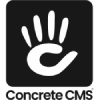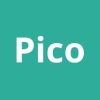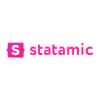PHP-Based CMS
PHP-based CMS platforms are popular because they are typically open source, meaning that the software is free to use and can be customized to meet the specific needs of the organization. Additionally, PHP is a widely used programming language, which means that there are many developers and resources available for troubleshooting and support.

Kirby is the content management system that adapts to any project. Made for developers, designers, creators and clients.
Visit website➔
Magento is an open-source e-commerce platform written in PHP. It uses multiple other PHP frameworks such as Laminas and Symfony.
Visit website➔
CMS Made Simple is exactly what it calls itself: a simple-to-use, simple-to-manage content management system built using PHP.
Visit website➔
Concrete CMS is an open source content management system for teams. A website builder with built in tools make editing content easy.
Visit website➔
Craft is a flexible, user-friendly PHP CMS for creating custom digital experiences on the web and beyond.
Visit website➔
Drupal is a free and open-source web content management system written in PHP and distributed under the GNU General Public License.
Visit website➔
The world’s most flexible & secure open source CMS. Combining a thriving developer community with best-in-class support, ExpressionEngine is mission control for your website’s content.
Visit website➔
Grav is a Modern, Crazy Fast, Ridiculously Easy and Amazingly Powerful Flat-File CMS.
Visit website➔
Joomla! is mobile-ready and user-friendly way to build your website. Choose from thousands of features and designs. Joomla! is free and open source.
Visit website➔
Monstra is a modern and lightweight Content Management System. It is Easy to install, upgrade and use.
Visit website➔
Pico is a flat file CMS, this means there is no administration backend and database to deal with. You simply create .md files in the 'content' folder and that becomes a page.
Visit website➔
PrestaShop is an open source e-commerce platform that is available for free, with the option to upgrade to a premium version. The software is licensed under the Open Software License and is built using PHP programming language, with built-in support for the MySQL database management system.
Visit website➔
PyroCMS is an easy to use, powerful, and modular CMS and development platform built with Laravel 5.
Visit website➔
The Silverstripe CMS is a flexible PHP open source Content Management System that focuses on giving everyone involved in a web project the tools that they need.
Visit website➔
Learn why Statamic is the best Flat File CMS for most people. Bring fully dynamic websites and applications to life with nothing but YAML Front-Loaded Markdown files and HTML. Enjoy a beautiful, modern control panel anyone can use.
Visit website➔
43% of the web is built on WordPress. More bloggers, small businesses, and Fortune 500 companies use WordPress than all other options combined.
Visit website➔Good to know...
What is a PHP-based CMS?
A PHP-based CMS is a content management system (CMS) that is built using the PHP programming language. PHP is a popular open-source server-side scripting language that is widely used for web development.
PHP-based CMS platforms typically consist of a core set of PHP scripts that provide the basic functionality of the CMS, such as content management, user authentication, and database integration. The CMS may also include additional features and capabilities that can be added through plugins or extensions.
Some popular PHP-based CMS platforms include:
- WordPress: The most popular CMS platform in the world, WordPress is built using PHP and powers over 40% of all websites on the internet.
- Drupal: A flexible and scalable CMS platform that is built using PHP and is commonly used for complex websites and applications.
- Joomla: Another popular CMS platform that is built using PHP and is known for its user-friendly interface and powerful features.
- Magento: An open-source e-commerce platform that is built using PHP and is widely used for online stores and retail websites.
- Concrete5: A user-friendly CMS platform that is built using PHP and is known for its simplicity and ease of use.
Why are PHP CMS's soo popular?
PHP CMS (Content Management System) systems are popular because they provide a framework for building websites and web applications quickly and easily, without requiring extensive knowledge of programming or web development.
Some of the key reasons why PHP CMS systems are so popular are:
- Easy to use: PHP CMS systems are designed to be user-friendly, even for people without coding or technical skills. This means that anyone can create and manage their website or web application without needing to hire a developer.
- Flexibility: PHP CMS systems are highly flexible and can be customized to meet the specific needs of different businesses and industries. They offer a wide range of templates, themes, and plugins that allow users to add features and functionality to their website or application without the need for custom coding.
- Open source: Many PHP CMS systems are open source, which means that they are free to use and can be modified by developers to suit their needs. This makes them accessible to small businesses and individuals who may not have the budget for expensive proprietary software.
- Community support: PHP CMS systems have large and active communities of developers and users who contribute to the development and improvement of the software. This means that users have access to a wealth of resources, tutorials, and support forums to help them troubleshoot issues and learn new skills.
Overall, PHP CMS systems are popular because they provide an easy and cost-effective way for businesses and individuals to create and manage their websites and web applications, without requiring extensive technical knowledge or resources.
What types of websites are best suited for a PHP-based CMS?
PHP-based CMS platforms are suitable for a wide range of websites, from small personal blogs to large enterprise websites. However, they are particularly well-suited for websites that require frequent content updates and changes, such as news websites, online magazines, and blogs. This is because PHP-based CMS platforms allow website owners to easily add, edit, and remove content without any technical knowledge of HTML or CSS.
In addition, PHP-based CMS platforms are also great for building e-commerce websites, social networks, and community forums. They provide powerful features for managing user accounts, creating and managing content, and integrating with third-party tools and services.
PHP-based CMS platforms are flexible and versatile enough to accommodate a wide range of website types and sizes, making them a popular choice for website developers and owners alike.
How often are updates released for PHP-based CMS platforms, and what kind of support is available from the developer community?
The frequency of updates released for PHP-based CMS platforms varies from platform to platform. Some CMS platforms release updates more frequently than others, while others may only release updates in response to security threats or major bugs.
In general, major updates that include significant changes to the CMS platform tend to be released less frequently than minor updates that include bug fixes or minor feature enhancements.
Most PHP-based CMS platforms have active developer communities that provide support through forums, documentation, and other resources. Many CMS platforms also offer professional support services for a fee, such as phone or email support, consulting services, or training courses.
It's important to keep your PHP-based CMS platform up to date with the latest updates to ensure that your website remains secure and optimized for performance. You should regularly check for updates and apply them as soon as they become available.
Can I integrate third-party tools and plugins with a PHP CMS?
Yes, most PHP-based CMS platforms allow for the integration of third-party tools and plugins. In fact, this is why many people choose these type of CMS platforms. These tools and plugins can help enhance your website's functionality and add new features that may not be available out of the box.
There are many third-party tools and plugins available for PHP-based CMS platforms, including e-commerce plugins, social media integrations, SEO tools, analytics tools, and more. Many of these plugins are available for free, while others may require a one-time or recurring fee.
Most PHP-based CMS platforms have marketplaces or directories where users can browse and download plugins, or they may have built-in features that allow you to search and install plugins directly from within the CMS platform.
It's important to carefully evaluate any third-party tools and plugins before installing them to ensure that they are compatible with your CMS platform and won't cause any conflicts or performance issues. You should also ensure that any plugins you install are from reputable sources and are regularly updated to ensure compatibility and security.
What is the cost of using a PHP-based CMS, and are there any hidden fees?
The cost of using a PHP-based CMS can vary widely depending on the specific platform and the features you need. Some PHP-based CMS platforms are free and open-source, meaning that you can download and use them without paying any fees. Other platforms may charge a one-time or recurring fee for access to certain features or support services.
In addition to any fees charged by the CMS platform itself, there may be additional costs associated with using a PHP-based CMS. For example, you may need to purchase web hosting services or a domain name to host your website, which can add to the overall cost.
It's also important to be aware of any potential hidden fees associated with using a PHP-based CMS. For example, some plugins or themes may require a fee for access or may be free initially but then require a fee for ongoing updates or support. You should carefully review any terms and conditions associated with using a PHP-based CMS and its associated plugins and themes to ensure that you understand all fees and charges.
Overall, the cost of using a PHP-based CMS can vary widely, and it's important to carefully evaluate your needs and budget before selecting a platform.